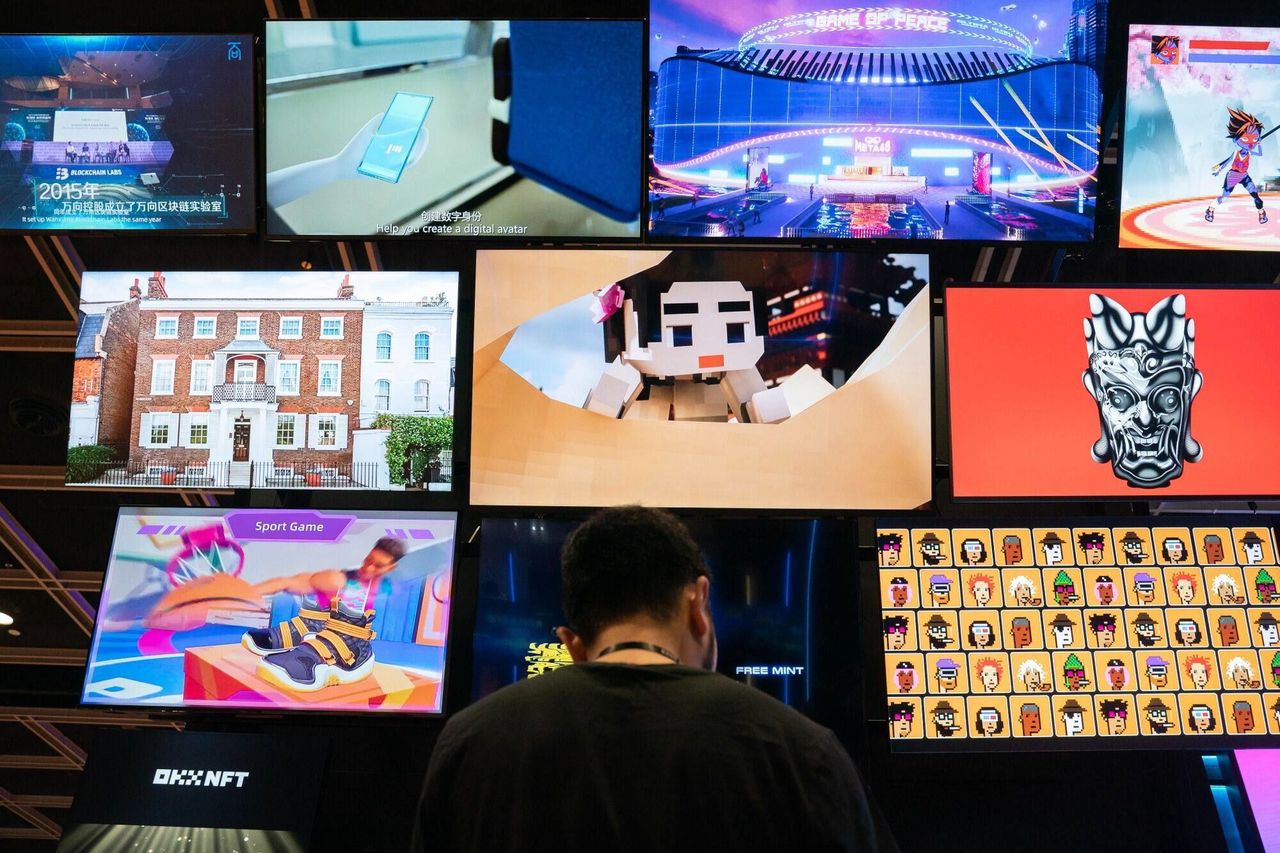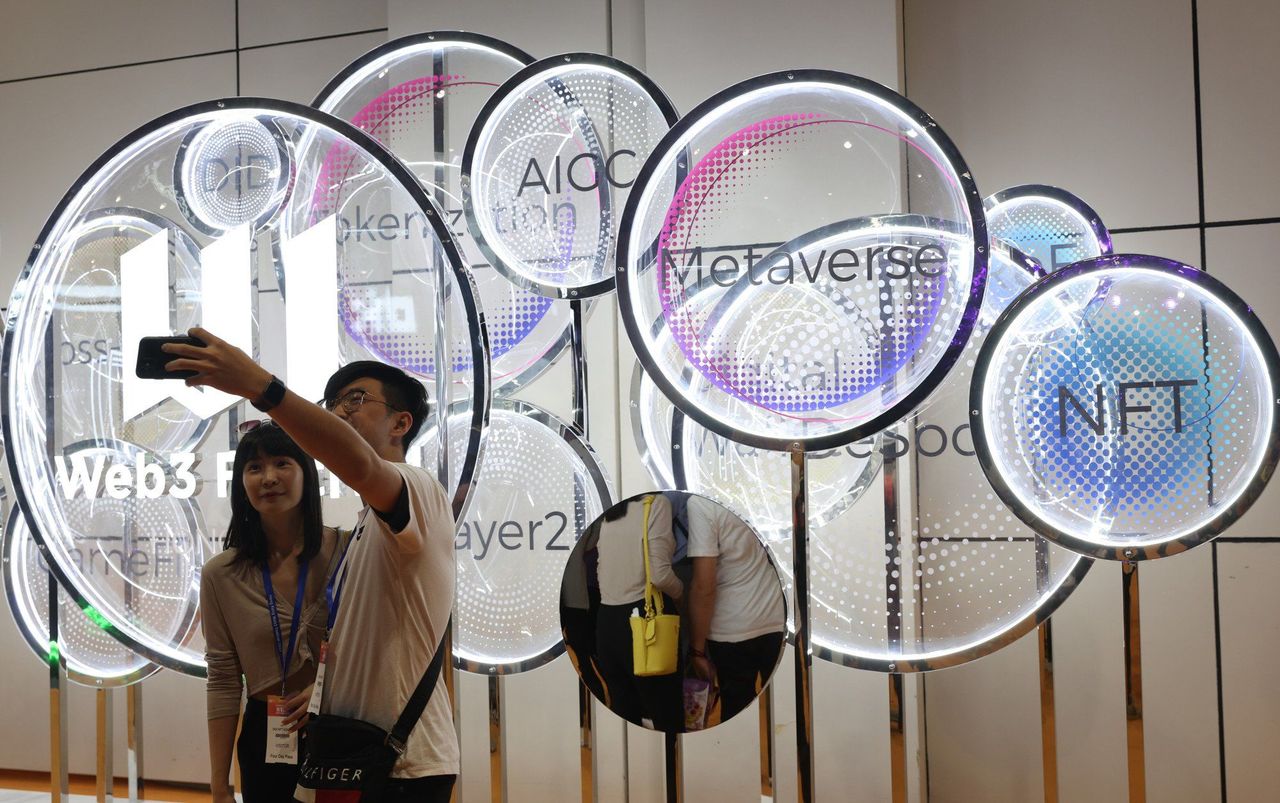Hong Kong News

SCMP spin-off shakes off cooling interest in NFT to raise US$3.25 million
Artifact Labs, a Hong Kong-based non-fungible token (NFT) company that puts digital versions of artefacts on the blockchain, said it is planning several new collaborations with global museums and cultural institutions after raising US$3.25 million in a seed financing round.
“The main purpose of this seed round is really to help the business scale and grow,” said Phillip Pon, CEO of Artifact Labs, in an interview with the South China Morning Post on Tuesday. “That expansion will come from both investment in our technology stack and through hiring great talent that will drive business development.”
The funding round, announced on Monday, was led by Blue Pool Capital, the family wealth management firm of Alibaba Group Holding co-founder Joe Tsai, who is also the chairman of South China Morning Post Publishers Limited.
Animoca Ventures, the investment arm of Hong Kong-based blockchain video gaming unicorn Animoca Brands, also took part in the funding round.
Artifact Labs was spun off from the Post in March 2022, after the newspaper released its first collection of NFTs featuring its coverage of momentous news events from 1997, including the handover of Hong Kong from British to Chinese rule. The sales generated US$260,000 in revenue.
The Post currently retains an ownership stake in the venture.
In February this year, Artifact Labs announced a collaboration with RMS Titanic Inc, the company granted the rights to salvage the sunken ocean liner, to turn physical relics recovered from the ship into NFTs.
Other partners of ongoing collaborations include the Hong Kong lifestyle brand G.O.D. and the Hong Kong Philharmonic Orchestra, which is designing a virtual concert with Artifact Labs that will take place in Animoca Brand’s metaverse world, The Sandbox, this summer.
“Our strategy is to help these brands bring their existing cultural and historical IP into Web3, where it can be accessed and enjoyed by new audiences,” said Pon.
 Monitors displaying NFT artworks during the Web3 Blockchain Festival in Hong Kong on April 12, 2023.
Monitors displaying NFT artworks during the Web3 Blockchain Festival in Hong Kong on April 12, 2023.
In addition to bringing a new source of fundraising to museums and cultural institutions, NFTs provide a method for them to reach broader audiences that might not otherwise be exposed to things like traditional artwork, according to Pon.
“It’s about driving new engagement with historically significant collections by using Web3,” he said. “We want to carve new space in the younger public’s consciousness for historical brands and artefacts.”
Besides supporting upcoming partnerships, Artifact Labs plans to use its new funds to support its purchase of the source code acquired last month from Refinable, a Hong Kong NFT infrastructure provider, Po added.
The source code allows Artifact Labs to accelerate its product road map and mint NFTs across three different chains, including Ethereum, Polygon, and BNB Smart Chain, he said.
While Artifact Labs has global aspirations, Pon said its headquarters would remain in Hong Kong as the city seeks to establish itself as a virtual assets hub.
 Visitors attend the Web3Hub and Blockchain Labs during the Hong Kong Web3 Festival 2023 on April 14, 2023.
Visitors attend the Web3Hub and Blockchain Labs during the Hong Kong Web3 Festival 2023 on April 14, 2023.
Starting June, the city will allow retail investors to buy virtual assets with large market capitalisations, such as bitcoin and ether, on licensed platforms, a move that is luring in new crypto-related business and investment.
“Hong Kong has been at the forefront of regulating and providing regulatory clarity for companies that want to operate in digital assets,” said Pon.
While Pon said the new licensing regime bodes well for Web3 development, the market excitement around NFTs has cooled significantly from two years ago, when hype around the digital asset class first took off.
The Forkast 500, which measures the performance of the global NFT market, is down over 89 per cent since the start of 2022, although some of the most high-profile projects such as Bored Ape Yacht Club still maintain high valuations.
This trend will continue as the market shifts into a new era, according to Pon.
“Moving forward, we expect there will be much more focus on collaborations with corporates and projects aimed at customer activation,” he said. “That’s going to be part of how NFTs are more broadly adopted.”











